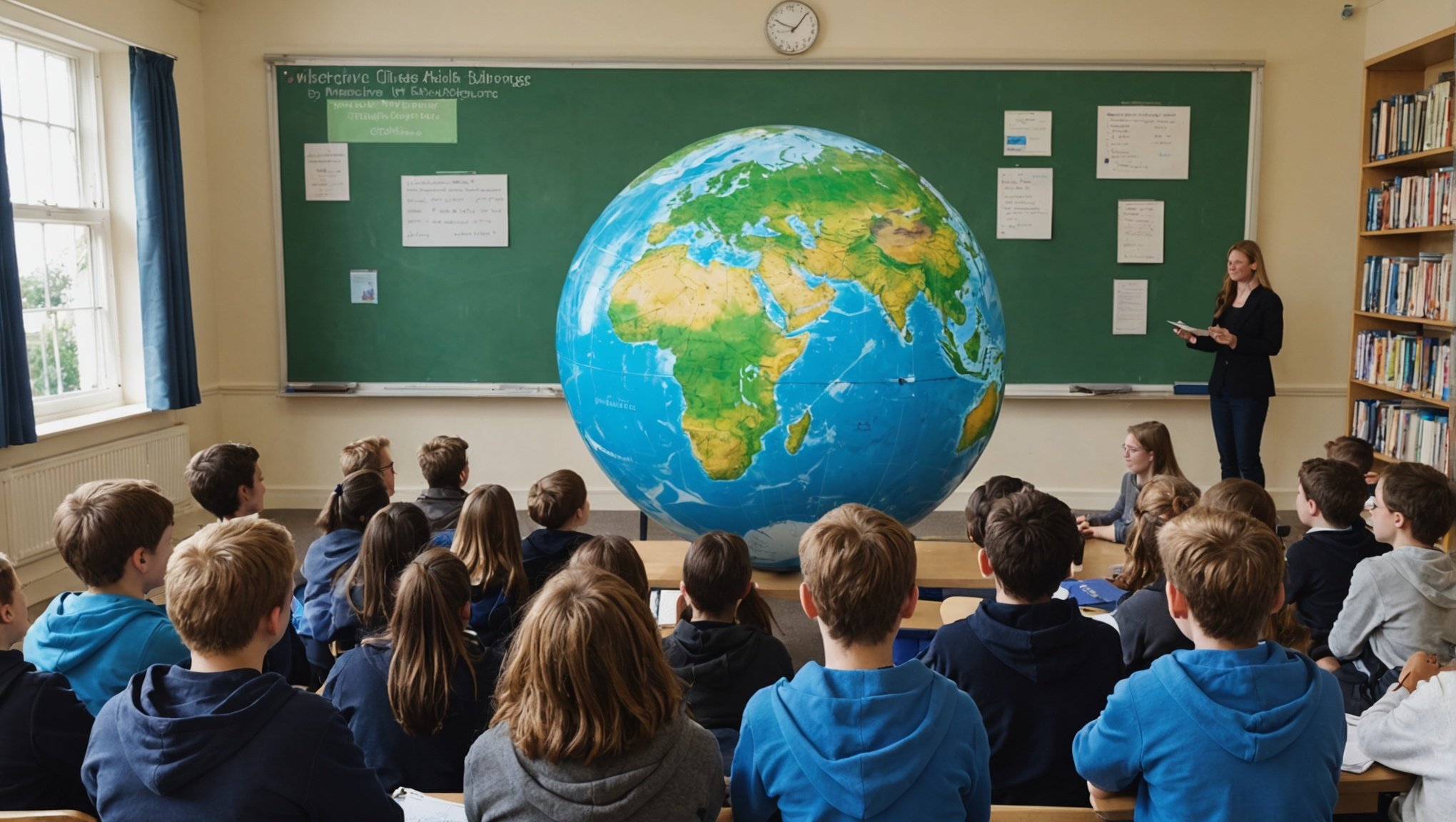Importance of Climate Change Education in Schools
Education is a powerful tool in combating climate change, yet climate change education in UK schools is often variable. While national curriculums include climate topics, the depth and engagement often depend on individual schools. This inconsistency can affect student awareness and understanding.
The role of education extends beyond teaching basic concepts; it is crucial in fostering environmental citizenship among students. By incorporating hands-on activities, real-world scenarios, and critical thinking exercises, educators can encourage students to develop a sense of responsibility and connection to the environment. This empowerment can lead to proactive behaviours that benefit the planet in both the short and long term.
Also read : Top Strategies for UK Households to Conserve Energy This Winter
Statistically, student engagement with climate issues is increasing. Surveys indicate a growing number of students interested in tackling climate change, yet many feel underprepared. A robust climate change education can bridge this gap, transforming interest into informed action. Therefore, UK school curriculums must evolve continuously to provide relevant, accurate information that inspires student empowerment and active participation in environmental sustainability.
Innovative Strategies for Embedding Climate Change Topics
Exploring climate change education in a school setting requires innovative strategies that promote active learning and understanding. By embedding this crucial topic in the curriculum, schools can engage students more effectively.
Also to discover : Transforming Food Deserts: Exploring the UK”s Urban Farming Initiative और Its Impact on Local Communities
Interdisciplinary Approaches
Integrating climate change topics across different subjects has various benefits. This approach can foster a comprehensive understanding of environmental issues by connecting them to disciplines like science, geography, and even literature. For instance, a biology class could study the effects of climate change on ecosystems, while art students create projects highlighting environmental changes. Case studies show that successful interdisciplinary projects enhance student comprehension. One school integrated climate topics into its math class, having students calculate carbon footprints, thereby making abstract concepts tangible. Teachers can make cross-curricular connections by collaborating with colleagues from other departments and sharing resources.
Project-Based Learning
Project-based learning offers a hands-on way for students to explore climate topics. It encourages critical thinking and problem-solving by allowing students to work on real-world projects, such as local environmental improvement initiatives. Successful student-led projects have included community cleanup drives and renewable energy campaigns, demonstrating practical applications of classroom knowledge. To assess this learning style, teachers can evaluate both student participation and the outcomes of their projects, providing feedback on problem-solving skills and innovation.
Resources and Support for Educators
It is essential for educators to have access to educational resources that enhance climate change education. Various organizations dedicate themselves to providing comprehensive teaching materials designed specifically for educators. These resources include lesson plans, interactive modules, and multimedia presentations that cover a wide range of climate change initiatives.
Partnership opportunities with environmental organizations offer schools a chance to collaborate on projects, enriching the educational experience. Such partnerships can provide students with hands-on experiences like field trips and workshops oriented toward real-world environmental efforts. By engaging with these initiatives, educators can bring climate change discussions alive in their classrooms.
Teacher support is crucial for effective climate education. Many online platforms offer professional development courses that are tailored to enhancing climate literacy among teachers. These courses often cover the most up-to-date scientific findings on climate change, effective teaching strategies, and tools to engage students in the conversation about our planet’s future.
Educators can feel empowered knowing they have robust support and resources that enable them to make an impact in their teaching. By continually updating their knowledge through available programs, they become catalysts for sustainable change.
Challenges in Embedding Climate Change Education
Implementing climate change education presents numerous challenges, particularly when integrating it into existing curriculums. Teachers often encounter significant implementation barriers, such as preset curriculums and resource limitations. These obstacles hinder the seamless incorporation of climate topics into daily lessons.
Addressing Curriculum Limitations
Teachers navigate common hurdles due to curriculum limitations when introducing climate education. One crucial barrier is the lack of flexible content that permits the inclusion of new global topics. Advocates for educational reform suggest lobbying for curriculum amendments at both school and policy levels. Engaging key stakeholders—students, parents, and policymakers—in open discourse about climate education can foster a supportive environment for change.
Enhancing Teacher Confidence
The significance of professional development for educators in climate science cannot be overstated. Building teacher confidence through targeted training and creating robust support networks is essential. Collaborations among teachers to share best practices and innovate teaching methods can further inspire confidence in conveying complex climate topics.
Involving Students in Advocacy
One of the most effective ways to overcome resistance is through student involvement in advocacy. Empowering students to lead climate initiatives at school can amplify their voice. Promoting student-led advocacy and showcasing inspiring stories of engaged youths in local campaigns demonstrate how future leaders are taking environmental action seriously.
Case Studies of Successful Implementation
Exploring success stories in climate change education can provide actionable insights for schools eager to enhance their programs. Let’s look at some notable examples that have excelled in this area.
One standout is the Green School in Bali, which has earned recognition for its innovative hands-on approach. By integrating sustainable practices into their curriculum, this institution encourages active student involvement in environmental projects. This engagement forms a core part of their learning experience, making environmental issues relatable and illustrating their day-to-day impact.
In the United States, “Eco-Schools USA” exemplifies best practices by promoting an action-oriented framework. Through this program, schools adopt eco-friendly habits by empowering students to lead initiatives, from recycling campaigns to energy conservation projects. This focus on student-led projects fosters a sense of ownership and enhances learning outcomes.
Lessons drawn from these case studies underline the importance of providing practical experiences that resonate with students. By involving students in real-world applications and emphasizing their role as change makers, educators can cultivate a more profound and lasting interest in environmental sustainability. These models offer inspiration and concrete strategies that can be tailored to diverse educational settings.










